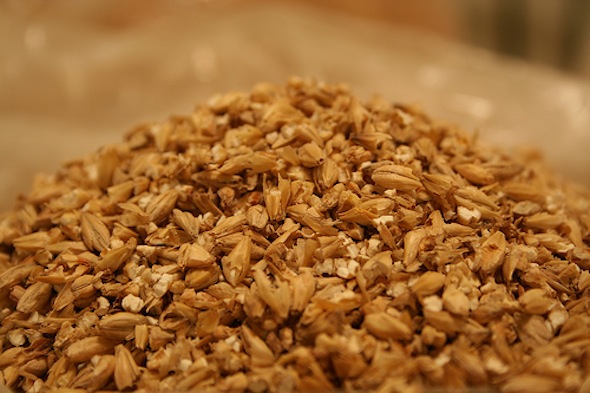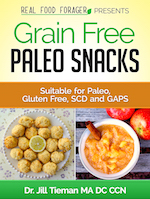There are many people who are questioning the “health” value of eating grains at all. There are many nutrition programs that eliminate grains from the diet. Some say to do this forever, as a way of life, but others require this elimination of grains for only a set amount of time, in order for the digestive system to heal. When digestion is healed, eating grains may not be the problem it once was. So who is correct? Are grains toxic or safe?
Grains must be properly prepared
There are people who just flat out refuse to give up grains. If you are going to eat grains, you must prepare them properly by soaking sprouting or using sourdough leavening techniques, in order to receive nutrition from them.
I have written extensively about the dangers of eating grains. Grains (as well as legumes and nuts) are full of phytic acid, lectins and other anti nutrients that cause digestive and absorption problems.
However, most of the “natural” foods we eat harbor toxins that are inherent to their composition. For example, there are numerous plant foods that are high in potentially harmful substances — so noxious that some people cannot tolerate them at all. They are oxalates, salicylates, tannins, phytoestrogens and goitrogens to name a few.
Oxalates
Oxalates are found in varying degrees in plant foods including vegetables, fruits, grains, legumes, spices, herbs, and nuts and seeds.
Foods high in oxalates include, bran, rhubarb, almonds, sesame seeds, various nuts, spinach, beets, swiss chard, chocolate, apricots, figs and many more.
These high oxalate foods may cause or increase inflammation and pain — they may irritate tissues and mucous membranes, and they contribute to the formation of calcium oxalate kidney stones, a very painful experience.
Salicylates
Another toxic substance inherent to plant foods are salicylates. Salicylates are chemicals that occur naturally in many plants and act as a plant immune hormone and a preservative which protects the plant against diseases, insects, fungi, and harmful bacteria. Salicylates are also created synthetically and can be found in many medicines, perfumes and preservatives.
Salicylates are high in apricots, avocado, blackberry, blueberry, tomato, radish, peppers, peanuts, almonds, honey, to mention a few.
Tannins
Tannins are found in the skins, seeds, and stems of grapes, tea leaves and oak. There are also some foods that have high amounts of tannins. They are pomegranates, persimmons, berries and nuts.
In sensitive individuals, a large intake of tannins may cause bowel irritation, kidney irritation, liver damage, irritation of the stomach, and gastrointestinal pain.
Goitrogens
Goitrogens are another group of plant foods that can be toxic to certain people. They can have a negative effect on the thyroid gland. They are found in the cruciferous vegetables, especially when eaten raw. Cooking will decrease the detrimental effects somewhat. Read about my 6 reasons to drink fermented cabbage juice.
Phytoestrogens
Phytoestrogens are plant compounds with effects somewhat similar to the hormone estrogen. Some studies have shown them to be beneficial, however in large amounts, relative to size, they can be dangerous. The highest amounts of phytoestrogens are found in flax seeds and soy products. Soy products that are not fermented in the traditional way are particularly dangerous for many reasons.
Solanaceae
Lastly, I’ll mention night shade vegetables (Solanaceae: tomato, potato, peppers, eggplant and their relatives) which contain solanine, a glycoalkaloid poison found in this species of plants. This chemical can be extremely toxic to sensitive people and may cause severe joint inflammation, impact nerve and muscle function as well as cause digestive distress.
Why am I talking about all these toxins in plant foods?
Because most people have no problems eating these foods. However, when someone has a leaky gut, dysbiosis, food sensitivities, intolerances, or allergies they may become very sensitive to some of these foods. This can have a major impact on a person’s health and should be avoided until the gut is healed.
But for people who tolerate these things, eating them is fine as long as they are prepared or cooked appropriately.
Clearly, this applies to the question about grains. While they may be toxic for some people, others may enjoy them as long as they are properly prepared. In a previous post, I stated that I would NEVER eat commercial bread. That is true because I cannot tolerate the grains that are in our commercial food supply, for many of the reasons outlined in my post. The only way I can enjoy grains are when they are prepared properly and only in small, infrequent amounts.














